history
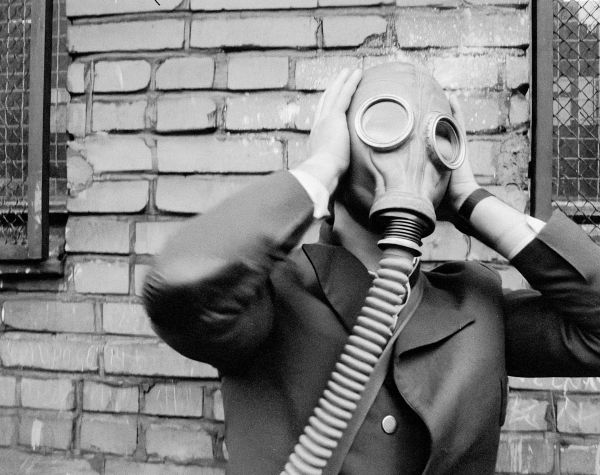
A Year In The Life Of A Country
On the 13th of December 1981, telephone connections were cut off throughout Poland. Tanks appeared in the streets of the cities. A night curfew came into force. In response to the growing influence of the Solidarity trade union movement, General Jaruzelski's government declared a state of emergency. Tomasz Wolski's edited documentary uses lesser-known archival footage to put this tense chapter of Polish history into a broader context. But it is not only the speeches of politicians and dramatic clashes between citizens and the repressive apparatus that are included in this collage, edited with a flair for the absurd – the myth of a nation that suffered under totalitarian rule is shattered by images of everyday life. Many Poles are convinced, in line with government propaganda, that the opposition could have started a civil war. Others are more concerned about empty shelves than about the lack of freedom. The ubiquitous police and soldiers become as much a part of socialist reality as the fact that a shoe shop sells chickens. Ironically, the foreign correspondent seems most concerned about the whole situation. This portrait of a divided country, whose tragicomic quality also lies in its timelessness, concludes Wolski's historical trilogy (see An Ordinary Country (2020) and 1970 (2021)).“This time, I wanted to treat archive material like free jazz. The soundtrack will reflect that as well.”Quote source: Variety
director: Tomasz Wolski
original title: Rok z życia kraju
country: Poland
year: 2024
running time: 84 min.
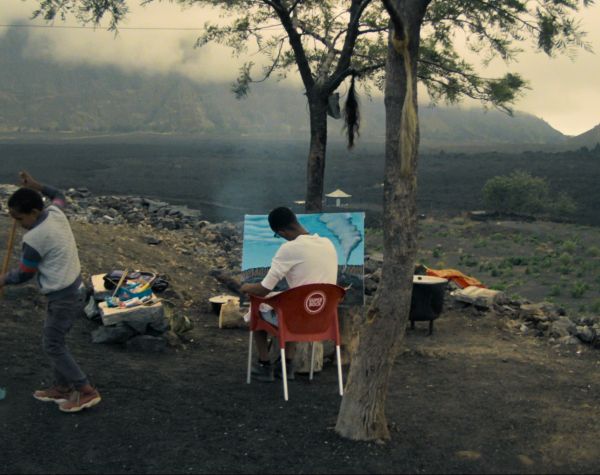
Apple Cider Vinegar
When documentary filmmaker Sophie Benoot had a kidney stone removed, she was astonished to discover that it contained a mineral found mainly in Antarctica. So she set out to find out how the foreign substance came to be in her body. It took the form of a playful polemic against the conventions of natural history documentaries. The narrator's voice, audible outside the picture, accompanies us during expeditions to different parts of the world, during which new layers of rocks and our history are uncovered. A wide-ranging reflection on the interconnectedness of the human and non-human shows that the ability to appreciate the wonders of the universe is perhaps more important than solving all mysteries. “I thought portraying our relation with stone could be a way to address certain ecological questions. Stone symbolizes a certain tradition of relating to nature that I inherited as well, living in the European West.” — Sofie Benoot
director: Sofie Benoot
original title: Apple Cider Vinegar
country: Belgium, Netherlands
year: 2024
running time: 80 min.
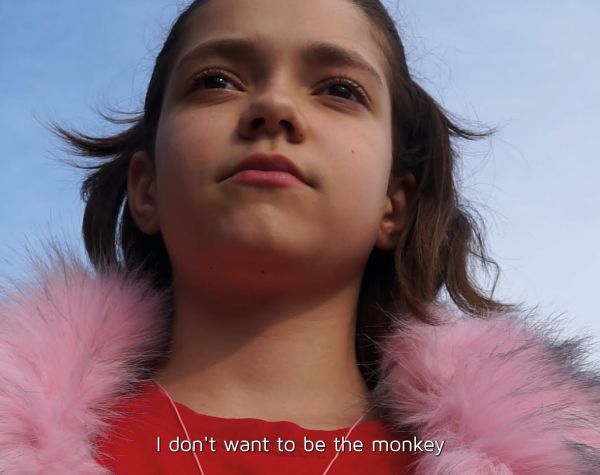
Becoming Outline
It started with an autobiographical art project. Miriam Bajtala used the floor plans of the 18 apartments she had lived in until now. They served as canvases on which she used words and colors to transfer her memories of the given space as well as the disadvantageous socio-economic factors that shaped her as a woman and a foreigner. In the confrontation she had begun with her own family history, the author is now continuing the film, which is fiction, documentary and performance. Different spaces and dimensions of existence – national, class, gender – are constantly layered on top of each other and rearranged in it. The result of the act of visualization and updating becomes a spatial curriculum vitae. “My experiment of creating a conceptual coming-of-age film.” — Miriam BajtalaSource: sixpackfilm
director: Miriam Bajtala
original title: Becoming Outline
country: Austria
year: 2024
running time: 70 min.
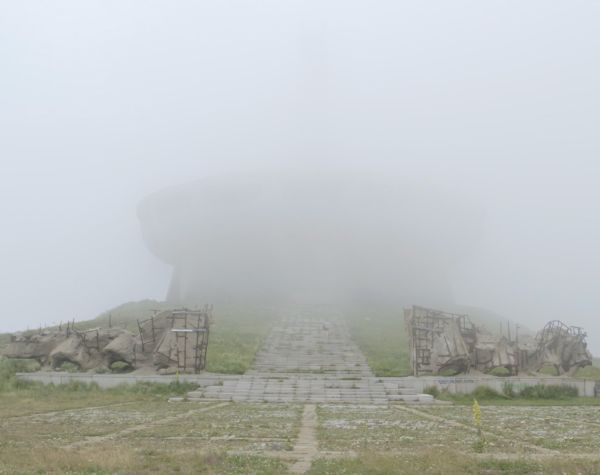
Cosmonauts Like Chewing Gum
Growing up in West Germany in the 1980s, Aline imagined a gregarious life on the other side of the Berlin Wall. Meanwhile, in communist Bulgaria, Veselina believed that everyone was happy under capitalism. In their collaborative hybrid documentary, they use their childhood fantasies to sketch a new utopia.
director: Aline Helmcke, Veselina Dashinova
original title: Cosmonauts Like Chewing Gum
country: Bulgaria, Germany
year: 2024
running time: 20 min.
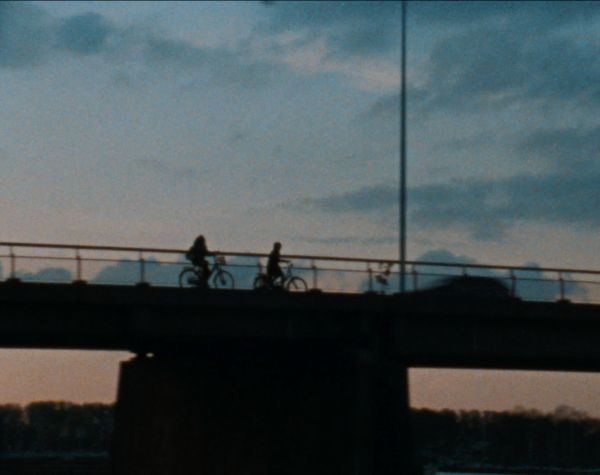
Dear Shadow, My Old Friend
This film, at the intersection of visual art and documentary, reveals the shadowy past of the Dutch colonial empire through artfully edited archival footage. A dreamlike essay on the confectionery industry driven by the exploitation of Indonesian farmers, it also depicts the traditional rituals of the author's people and asks questions about modernity, the passage of time, the formation of memory and the nature of humanity.“Through the intersection of visual art and cinema, I plunge into Indonesia's haunting colonial past, exploring its hidden depths and intricate layers.” — Timoteus Anggawan Kusno
director: Timoteus Anggawan Kusno
original title: Sihir Kamar Gelap
country: Netherlands, Indonesia
year: 2023
running time: 13 min.

Children of War and Peace
After the First World War, the nationalism of Finnish society increases and with it the need to create a nation with fighting power. One of the strategies of the government and propagandists of the time was the indoctrination of children and youth, together with their education to love the nation and hate the enemy. Using archival footage, radio recordings, photographs, as well as authentic diary entries of Finnish teenagers, the film depicts how state power can abuse children's innocence and malleability to achieve its political and war goals. This creates a parallel between the historical reality and the young fighters of today's wars. “They only need to believe, obey and fight. Our battleground is the soul of the Finnish youth.”
director: Ville Suhonen
original title: Sodan ja rauhan lapset
country: Finland
year: 2024
running time: 65 min.
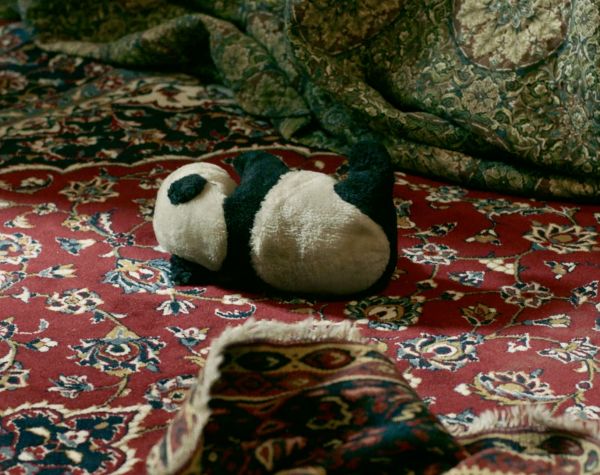
Karun – The Longest River of Iran
On September 22, 1998, the Iranian poet Hamid Hajizadeh and his nine-year-old son Karun, whose name symbolically refers to Iran's longest river, were brutally murdered in their home in Kerman. The documentary film, based on the statements of the survivors, tries to sensitively reconstruct one of the many terrible, politically motivated events that took place in Iran at the end of the previous century, and draws us into the fateful day with the help of detailed shots of the objects in Hamid's study.“And he asked, which one torments the other one; The places or the memories…?” — Shahriar MandanipourSource: Berlinale Talents
director: Sahand Sarhaddi
original title: Karun – The Longest River of Iran
country: Switzerland, Finland, Iran
year: 2024
running time: 19 min.
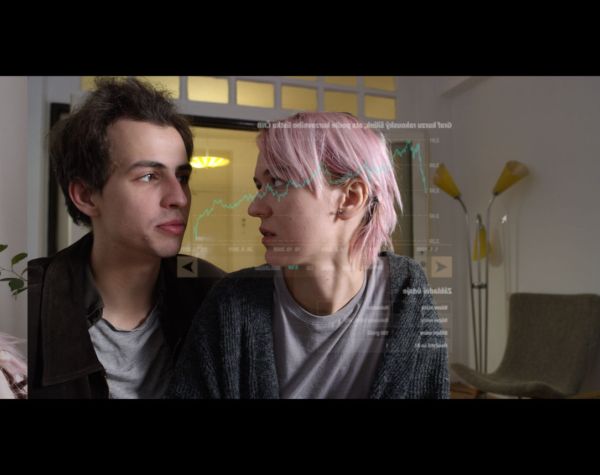
Kinetopsia
Kinetopsia, a disorder in which one believes that static objects are in motion, serves as a metaphor for the social situation we find ourselves in: the Velvet Revolution took place thirty-five years ago, and while the opaque present continues to bring new problems, public discussion often still revolves around the hunt for the "spectre of communism". From the perspective of a young couple, we discover the fascinating project of Sylvia's abandoned Discoland and become aware of the critical moments of the political transformation that has determined the economic and cultural conditions in which we live today. "We are fighting here. Against the fucking communists, for freedom."
director: Tomáš Svoboda
original title: Kinetopsie
country: Czech Republic
year: 2024
running time: 30 min.
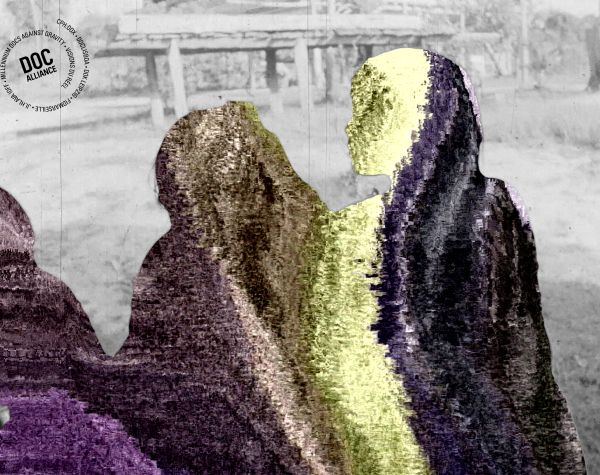
Like the Glitch of a Ghost
Paula Albuquerque's conceptual film is based on a propaganda documentary from the 1950s, which she came across during her research in the archives of Amsterdam's Eye Film Museum. It deals with the “educational” colonisation activities of the Netherlands in Suriname. The archival footage showing the interaction between a Dutch nurse and the indigenous tribes was used by the director to create a double cinematic work that, through a digital glitch that replaces the silhouettes of the indigenous population, allows her to highlight the ideological nature of the original film and restore the lost sovereignty of the “spirits”, who for centuries have been perceived as the inferior ones.“You notice there is a huge difference in how the body of the white male is represented when exhausted… and when we look at BIPOC [Black, Indigenous, and People of Colour]. Then, the body is always poor, dirty, sick. It’s always in relation to slavery or colonialism, or in positions of servitude.” — Paula AlburqerqueQuote source: Screen Daily
director: Paula Albuquerque
original title: Like the Glitch of a Ghost
country: Netherlands, Portugal
year: 2023
running time: 21 min.
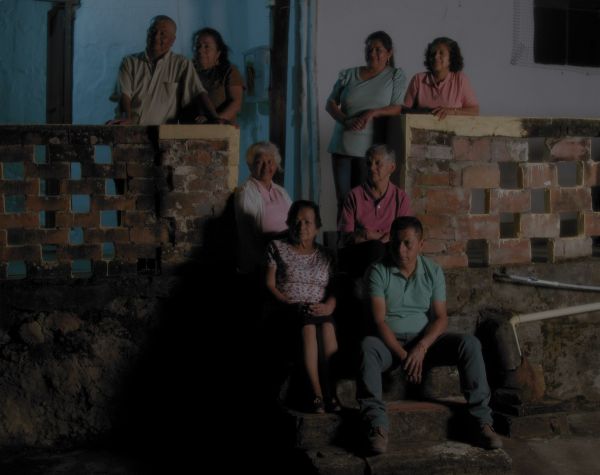
Main Home
“If a house is like our body, where is its heart located?” asks the narrator of the film, who is also one of the residents of the house in question. As we observe her and her partner going about their daily activities, the violent history of the place is revealed in hints as it comes back to life years later.
director: Cristian Hidalgo
original title: La Casa Grande
country: Colombia
year: 2024
running time: 28 min.
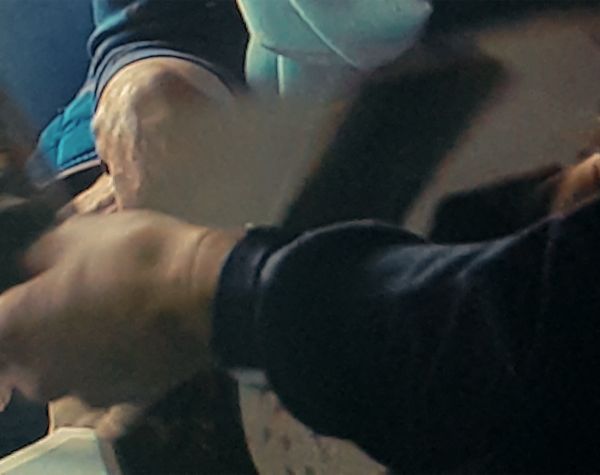
Place without Memory
During the summer holidays of 1994, an act of sexual violence took place in the Austrian alps. Nineteen years later, Philip Treschan confronts his mother with his trauma in a documentary essay. The family album is a nostalgic illusion, a gateway to an unspoken reality and a tool for an intimate conversation with the past and for piecing together the fragments of memory into a comprehensible whole.“Memory is not an unchanging vessel for carrying the past into the present; memory is a process, not a thing, and it works differently at different points in time.”Source: Philip TreschanTrigger warning: Film deals with topic of abuse.
director: Philip Treschan
original title: Ort ohne Erinnerung
country: Germany
year: 2024
running time: 27 min.
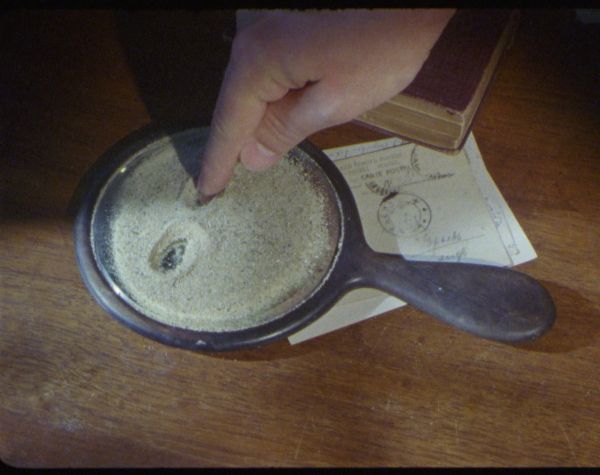
Sewing Machine
Not far from the Estonian border is the Russian town of Pechory. When it was occupied by the Estonian army after World War I, a Danish cameraman came along with the soldiers. The director's great-grandmother appears to be in the footage. This formally playful film uses archival footage and animation to tell the moving life story of this courageous woman.
director: Ülo Pikkov
original title: Õmblusmasin
country: Estonia
year: 2024
running time: 16 min.
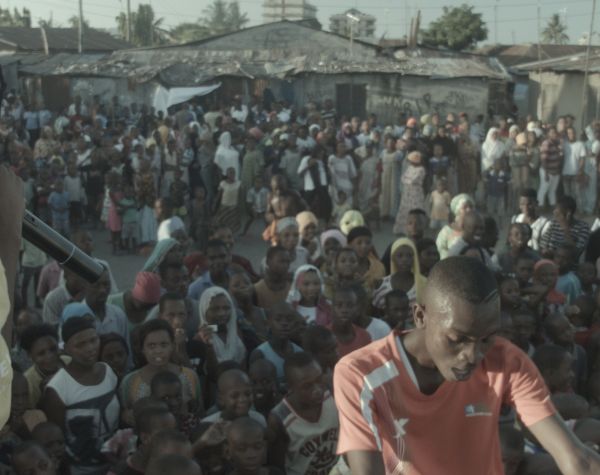
Singeli Movement: Greed for Speed
Nyege Nyege Tapes! is probably the most famous label introducing today's African electronica to the European independent scene. A cinematic context now comes to the unique sound. Polish filmmakers went straight to Tanzania to capture how musicians and DJs cultivating the style called singeli live. As Tanzania embarked on the road to capitalism twenty years ago, the film is also a testament to the changes that are shaping Tanzanian society today.
director: Jan Moss
original title: Singeli Movement: Greed for Speed
country: Poland, Tanzania
year: 2023
running time: 61 min.
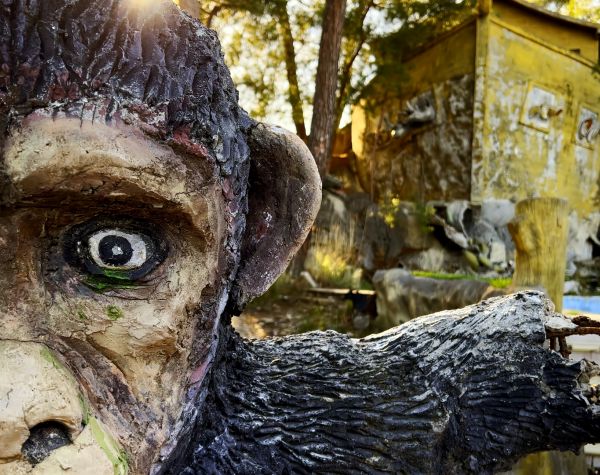
Strange Abandoned Deranged
Turkey's first “eco” hotel, Naturland Eco Park and Resort, opened in 1991 and operated until 2014. A hybrid of documentary, black satirical comedy and circus-style performance, the film builds on fictional voice-overs that depict the experiences of hotel guests and staff and the gradual decay of the once-pompous and now dilapidated abandoned complex, which was closed due to overwhelming debts and left virtually untouched. Strange Abandoned Deranged is a kaleidoscopic portrait of an ambivalent place that is full of faded colours, scratched walls and kitschy life-size animal sculptures. Like the site itself, which was once a premier tourist attraction and a haven for local politicians and royalty, the unfulfilled dream of a harmonious fusion of capitalism and ecology is increasingly unravelling, revealing an unpleasant reality that has been carefully hidden behind the walls of a man-made paradise. Both the absurdity and the controversy surrounding Naturland are symptomatic of Turkey's modern history.“Through its absurd voice, it crafts a circus-like panorama. Standing amidst abandoned state land with a history that echoes a mockumentary—filled with countless tragic incidents and boundless absurdities from Turkey's past—it becomes evident that to chase the controversial story of Naturland Eco Park is to journey through the last thirty years of a country.”
director: Ceylan Özgün Özçelik
original title: Hiçbir Şey Normal Değil
country: Türkiye, United Kingdom
year: 2024
running time: 70 min.
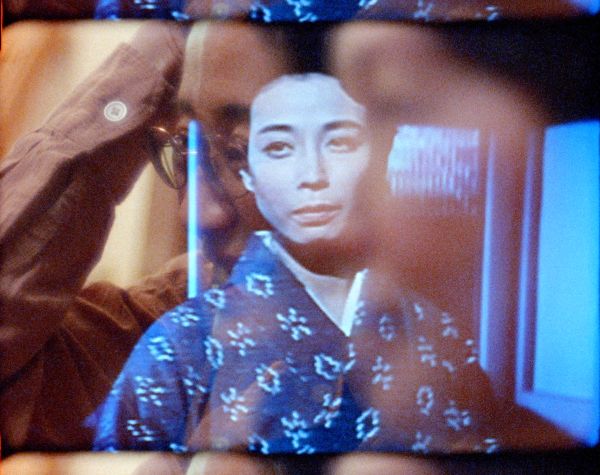
Summer Songs
Folk poetry collector Ōtani Masae visits the residents of the mountain village of Ubuyama in southern Japan and collects songs that are over a thousand years old. However, continuity is only an illusion and ancient cultural heritage is subject to fragmentary memory, rewriting and new contexts. Ballads, confessions and prayers are thus not a chronicle of old times, but a liberating manifesto against the patriarchal tradition that for centuries confined women to the solitude of their homes. Lyrically layered on 16mm filmstrip, with the intimacy of a family video and the poetics of a visual essay, the images explore the fragile power of ephemeral detail and the cathartic effect of communication and sharing.“By making this film, I have been able to discover and be amazed by the transformative power of the Japanese ‘uta’ (‘uta’ meaning song and poem at the same time). Gently, they help loosen iron bonds. They float over Ubuyama-mura’s heavy hetero-patriarchal heritage and its strict, unwritten laws of behaviour.”Source: Jorge Suárez Quiñones RivasFunded by INJUVE Grant for Contemporary Creation and Grant for contemporary creation and national and international mobility, Madrid City Council.
director: Jorge Suárez Quiñones Rivas
original title: Natsu no uta
country: Spain, Japan
year: 2024
running time: 95 min.
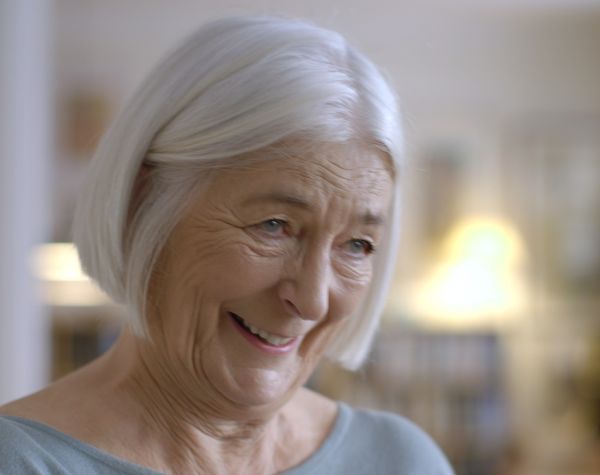
The Day Iceland Stood Still
The Red Stockings are pioneers of the feminist movement in Iceland. In the 1970s, they crucified a mannequin of a tired housewife on a Christmas tree, brought a live cow to a beauty queen pageant or initiated a mass strike by women across the country. Iceland thus discovered in October 1975 what happens when women leave their homes and jobs and take a day off. The humorous and serious accounts of the strikers, interspersed with Joel Orloff's animations and the closing track by Bjōrk, provide a cathartic testimony to civic awakening and the power of a collective voice to change society.“If you don’t tell this story, it never happened. This is the last chance for the women to put it in their own words, which are so powerful – as opposed to someone sometime in the future writing something based on archival material.” Source quote: Original CIN
director: Pamela Hogan
original title: The Day Iceland Stood Still
country: Iceland, United States
year: 2024
running time: 70 min.
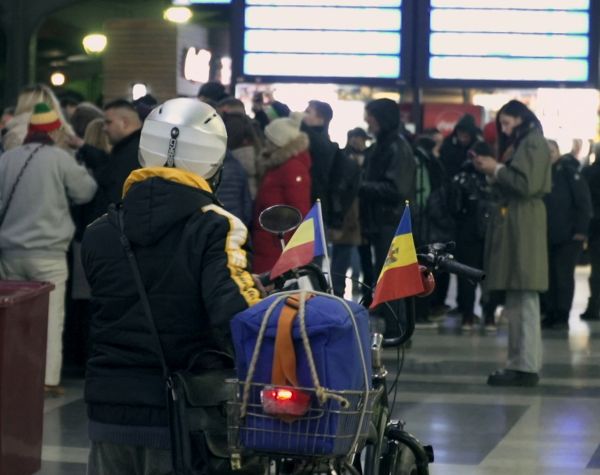
The Union Train
The populist Alliance for the Union of Romanians (AUR) organised a train for its supporters on the national holiday of Unification Day to visit celebrations culminating in the nationalist speeches of AUR’s President George Simion. The observational footage of passengers and participants in the grand convention brings to light the dangerous rise of the far right in Romania.“We need leaders who love their country, their people and those people’s values.”
director: Ștefan Marcu
original title: Trenul Unirii
country: Romania
year: 2024
running time: 24 min.
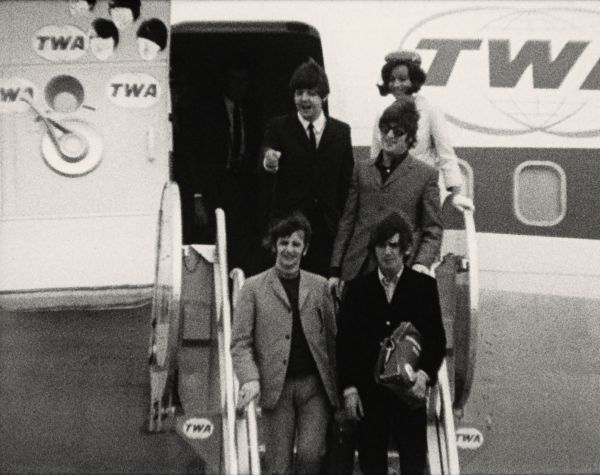
TWST - Things We Said Today
In August 1965, The Beatles arrive in New York to play their now legendary concert at a sold-out Shea Stadium to fifty-five thousand passionate fans. Outside their hotel, crowds of teenage female fans gather, eager to catch even a glimpse of the four idols. Archival footage from the press conference and television broadcasts soon spins into a narrative based on the autofiction of American poet Geoffrey O'Brien and the biographical accounts of writer Judith Kristen. On the border between reality and fiction, a poetic narrative unfolds, complemented by drawings by French illustrator Yann Kebbi. The context of the film is gradually expanded to include other significant moments captured on television at the time, evoking the spirit of the era and the associated ethos of youth. We are unsure whether the characters are real or fictional as they pass through a rich audiovisual kaleidoscope, guiding us through a lost but ever-present past in our consciousness.“Someday when we're dreamingDeep in love, not a lot to sayThen we will rememberThe things we said today.” Source: The Beatles - Things We Said Today
director: Andrei Ujică
original title: TWST - Things We Said Today
country: Romania, France
year: 2024
running time: 86 min.










